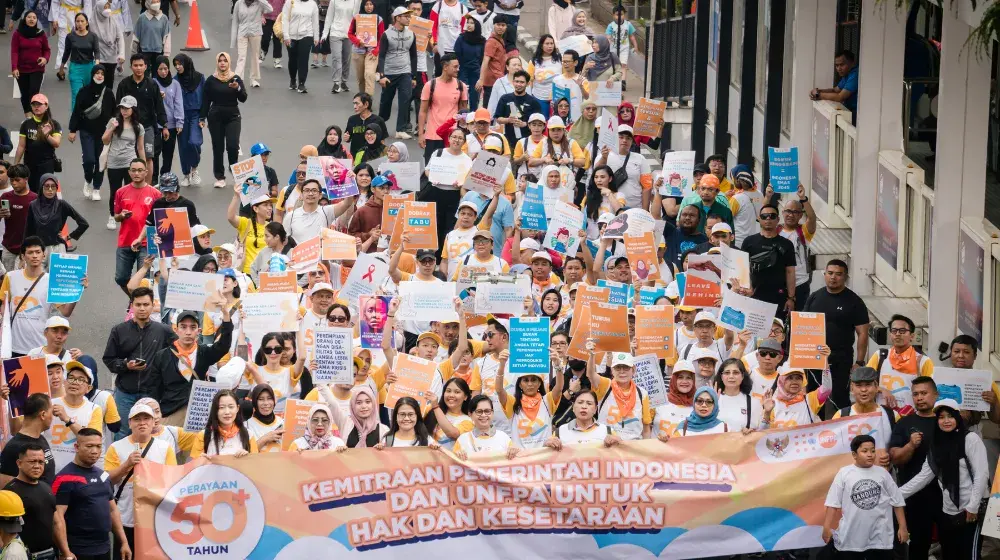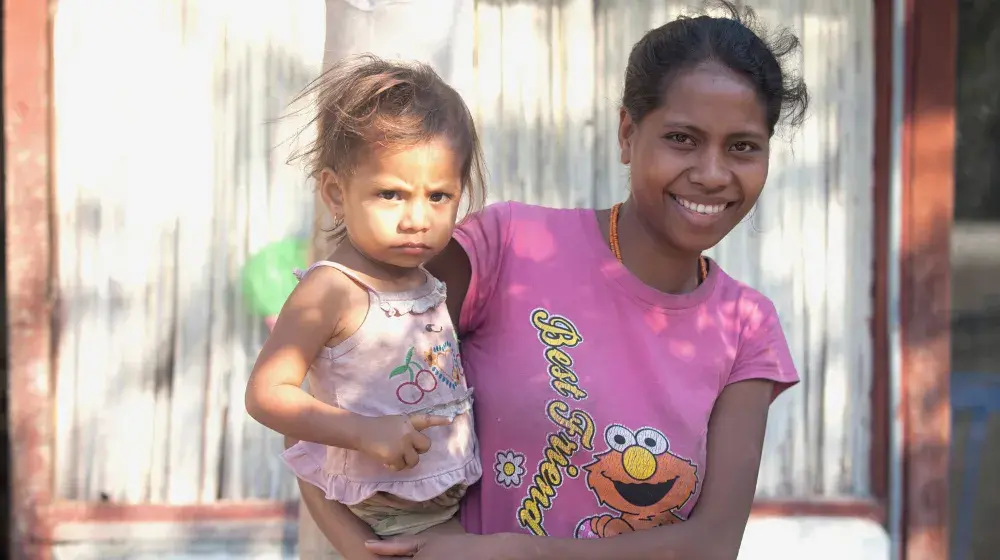
Dr. Nila Moeloek and Dr. Surya Chandra (centre) during the kick-off meeting for the International Conference on Family Planning (ICFP) in Jakarta on 26 May 2015.
With Indonesia set to host the fourth International Conference on Family Planning in Bali this November, the national stakeholders involved came together for the first time in Jakarta on Tuesday to kick-off preparations for the biennial meeting.
The global event, which will be held in Nusa Dua from 9-12 November, aims to improve the knowledge and commitment to boosting the family planning agenda.
Indonesia’s Coordinating Minister for Human Development and Culture, Puan Maharani, opened the first meeting on 26 May and told the room of around 70 people –including representatives from the Ministry of Health, the Ministry of Foreign Affairs, the National Population and Family Planning Board (BKKBN), the local government of Bali, faith-based organizations, non-governmental organizations, and development partners – that she hoped the various stakeholders would coordinate with each other to ensure that preparation targets were met ahead of the conference.
This year’s four-day meeting is also expected to help shape and influence the role and contributions of family planning in attaining the new Sustainable Development Goals, according to a statement by the founder and co-host of the event – the Bill & Melinda Gates Institute for Population and Reproductive Health at Johns Hopkins University. The event will also be co-hosted by BKKBN and supported by a number of development partners, among others by UNFPA, the United Nations Population Fund.
The theme for this year’s conference is “Global Commitments, Local Actions: The roles of family planning in achieving the Sustainable Development Goals (SDGs)”.
With the last ICFP event in Addis Ababa, Ethiopia, in 2013, attracting more than 3,500 people, organizers are expecting a higher turnout at this year’s conference – which will see participants from more than 80 countries including foreign governments, international institutions, experts and practitioners in the field of population, family planning and reproductive health and gender in attendance.
Dr. Siswanto Agus Wilopo, Head of the Center for Reproductive Health from the Faculty of Medicine at Gadjah Mada University in Yogyakarta, who serves as the Chair of National Scientific Committee, said that around 2,000 individual and panel abstracts had already been submitted for consideration this year, with Indonesia already sending a total of 165 abstracts, with UNFPA Indonesia providing technical mentoring to 44 abstracts from Indonesian researchers.
With Indonesia’s President Joko Widodo, United Nations Secretary-General Ban Ki-moon and UNFPA’s Executive Director Dr. Babatunde Osotimehin expected to attend the conference, Indonesia’s Health Minister Dr. Nila Moeloek said that they needed to take advantage of the presence of the high-level participants to ensure that they could revitalize the global conversation on population and family planning.
“We must seize the opportunity to raise the revitalization of the family planning programmes in Indonesia, especially in the presence of Mr. Ban Ki-moon, Dr. Babatunde and Jokowi [President Joko Widodo],” explained Dr. Nila, during the first meeting in Jakarta on Tuesday.
Dr. Surya Chandra Surapaty, BKKBN’s newly-elected Chairperson, reiterated Dr. Nila’s comments and said that it was time to implement the second movement of Indonesia’s family planning programmes.
Indonesia successfully proved its leadership efforts in innovative family planning programming with the contraceptive prevalence rate jumping to nearly 60 percent between 1976 to 2002 and the country’s total fertility rate cut in half. However, Indonesia’s progress slowed down after the government was decentralized in the early 2000s. The Indonesian Government is now committed to revitalizing the world’s fourth most populous country’s family planning programme, with the budget allocation for family planning rising from $65.9 million in 2006 to $263.7 million in 2014. UNFPA’s country programme has prioritized technical support to the national family planning programme, particularly in the development of a comprehensive and rights-based Family Planning Strategy.




